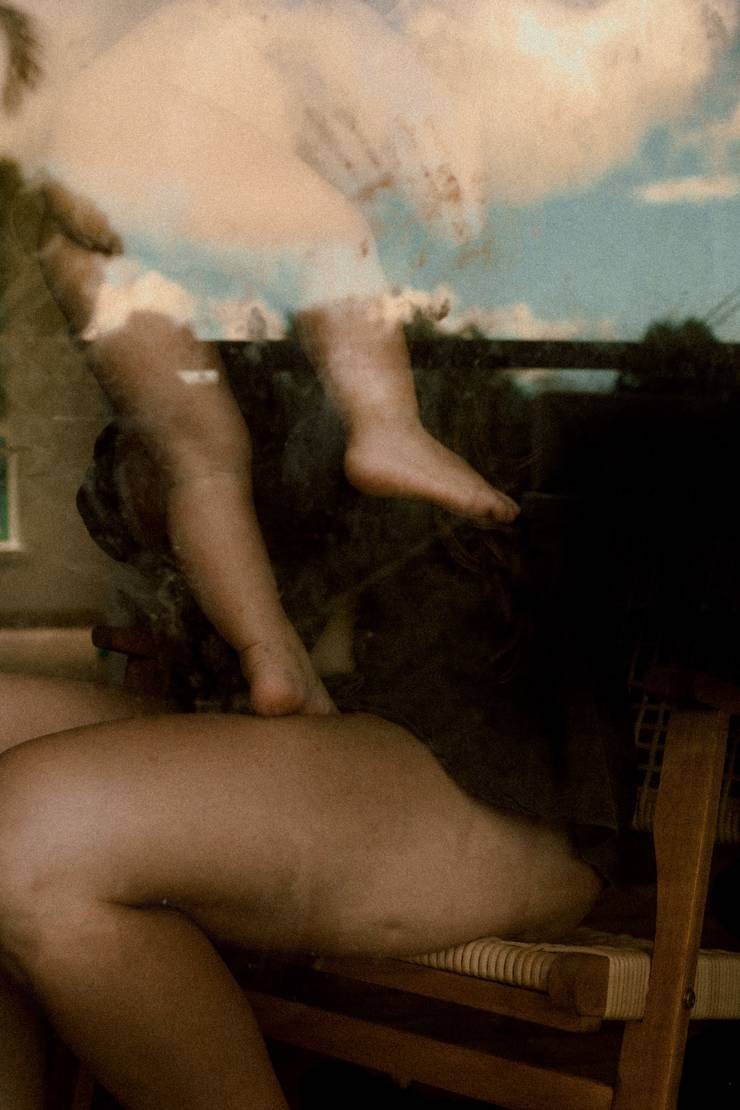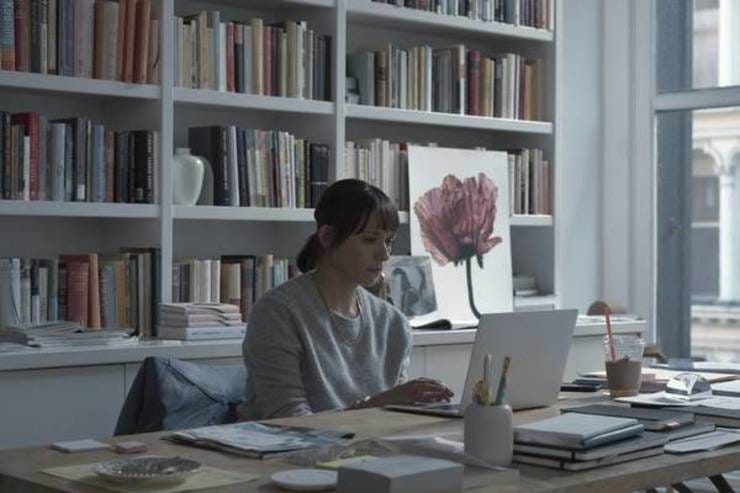A portrait of the artist as a young mum

Hi friends,
Welcome to the first edition of The Motherhood Sessions, a newsletter for mother makers, writers, dreamers and doers.
Thank you again for signing up. There are over 140 of you on here, which shows just how much these conversations are needed, now more than ever.
Every month, I'll send you some links, resources and reads – things I come across exploring motherhood and creative work.
I hope that they might encourage and inspire you, or simply kickstart a conversation (and please feel free to reply, I'd love to hear from you).
Right – let's get stuck in.
Something old: Adrienne Rich and finding "freedom of the mind"
Over the past few months, there has been a lot written about how Covid has plunged many women back into the 50s.
But what does that mean for our creativity? For that, I turned to the iconic feminist writer Adrienne Rich, who, in the 1950s, married and had three kids before she was 30 and wrote so presciently about the challenges of creative life and motherhood.
Below we find Rich reflecting on the increasing tensions she experienced as a wife and mother during that time - and honestly, much of it reads like a snapshot from one of the many Instagram DM convos I've had with a fellow creative mother.
On that very-particular-to-parenthood exhaustion:
“I was writing very little…partly from the discontinuity of female life with its attention to small chores, errands, work that others constantly undo, small children’s constant needs. What I did write was unconvincing to me; my anger and frustration were hard to acknowledge in or out of poems because in fact I cared a great deal about my husband and my children.”
On losing yourself after having kids:
"What frightened me most was the sense of drift, of being pulled along on a current which called itself my destiny, but in which I seemed to be losing touch with whoever I had been, with the girl who had experienced her own will and energy almost ecstatically at times, walking around a city or riding a train at night or typing in a student room."
On ‘having it all’:
“I had thought I was choosing a full life: the life available to most men, in which sexuality, work, and parenthood could coexist. But I felt...guilt toward the people closest to me, and guilty toward my own being. I wanted, then, more than anything, the one thing of which there was never enough: time to think, time to write.”
On finding the headspace to be creative:
“For a poem to coalesce…a certain freedom of the mind is needed—freedom to press on, to enter the currents of your thought like a glider pilot, knowing that your motion can be sustained, that the buoyancy of your attention will not be suddenly snatched away.
That “freedom of the mind” – secure in the knowledge you won't have to drop what you're doing – is what I often feel most robbed of. Even if I have somehow magically been able to create an actual pocket of time, I often find that I can be productive – reply to emails, tick off to-dos, schedule interviews – but being creative is the hard bit, isn’t it?
"The experience of motherhood was eventually to radicalize me" Rich went on to say, and, as this excellent New Yorker piece explores, her work reclaimed and repurposed images of domestic life "to show how they might be used for—and transcended in—art".
(All the above from When We Dead Awaken: Writing as Re-Vision, 1972)
Something new: On The Rocks
There's a lot to like in On The Rocks (Apple TV+). The rich, busy and bustling pre-Covid New York location. The implausible but undeniably gorgeous set design. And how, in many ways, it echoes Rich's experience decades earlier.
Written and directed by Sofia Coppola and starring Rashida Jones, Bill Murray and Marlon Wayans, it tells the story of a successful thirty-something writer Laura (Jones) struggling to feel seen and find her creative groove amidst the madness of life with two young kids and becoming increasingly suspicious that her husband might be having an affair.
Coppola says she started working on the script when her kids were little — "just that moment of trying to find my way as a creative working person ... navigating a new moment in my life."
In an interview with The Independent, Coppola talked about how "vulnerable and insecure" new mothers can feel. In a way, it's those feelings that allow the plot – where Jones and Murray embark on a series of increasingly madcap schemes to try and figure out whether her husband is indeed cheating – to happen:
"I’m just trying to take where I was at that moment in my life where my kids were younger…that adjustment. I think you go through an identity crisis [when you become a parent] and I thought it would make sense that she could be vulnerable and insecure enough to go along with this crazy plan, if she’s in that state.”
It's a quiet, gentle film in a way, but it sticks with you. I particularly loved how everyday scenes of seeming monotony – how we see Laura repeatedly picking up toys from the floor, squishing tiny feet into little shoes, hurrying to the school run, saying a rushed hello to friends, sitting in her office meticulously making labels for notebooks (rather than writing in them) – are so beautifully shot and documented. (Again, domestic life becomes art.)
Things I read and loved this week
This Vogue piece paying tribute to some of the people we lost in 2020 credits the wonderful Eavan Boland with "putting to rest the tiresome fallacy that motherhood and creativity cannot coexist".
There is some brilliant advice in this Instagram post from Irish journalist Nikki Walsh on what freelance creatives at home with small children should bear in mind.
Jen Stevens interviews creative mothers – including fashion stylists, creative directors and broadcaster Síle Seoige – on how the pandemic is causing a big creativity lag for mothers right now [subscription needed].
This New York times series following "American mothers on the brink" makes for grim, eye-opening and compelling reading.
In some positive pandemic news, this BBC Worklife piece examing how Coronavirus is going to change the way we work mentions research that says remote work can help mothers better balance their work and family responsibilities, "which makes them less likely to sacrifice one for the other".
"When people ask me “how I do it all” as a working mother, the answer is simple: I spend an extraordinary amount of money on childcare"
Freelance life + spotty childcare often means you feel you can’t afford to do something just to scratch a creative itch. So understanding what you need to bring in and what your time is worth is vital. I loved this pricing guide from my mega woman crush Jessica Hische – it’s aimed at illustrators, but the fundamentals apply to any creative career, and it's full of lots of gems like the one above.
If you're working for yourself in any creative field and struggling with knowing what to charge, I highly recommend it.
I'll leave you with...
What’s better now than then?
If you’re anything like me, it’s often all too easy to wallow in what has been lost in this new land of parenthood: time, idleness, that sense of open possibility. But I know there are some things that I have gotten better at, and that will ultimately support and protect my creativity in the long run. One of these is saying no. I’ve always been prone to taking too much on, and not being selective enough. But my time isn’t my own any more, and I’m becoming much more disciplined, which in turn has often led to having the space to say a big, enthusiastic yes to truly fun, enriching things.
How about you? If you are a mother, is there anything in your creative life that has improved, even a tiny bit?
That's it for this month. If you have any feedback, article recommendations or just want to say hi, I'd love to hear from you.
Thanks for reading, and see you next month,
Nathalie





